| Empire of Nehekhara | |
|---|---|
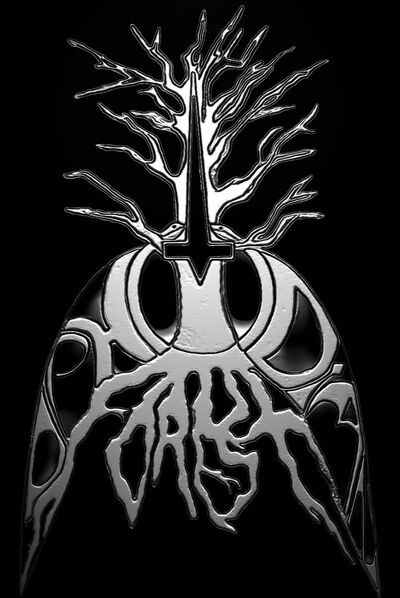 Flag of Nehekhara | |
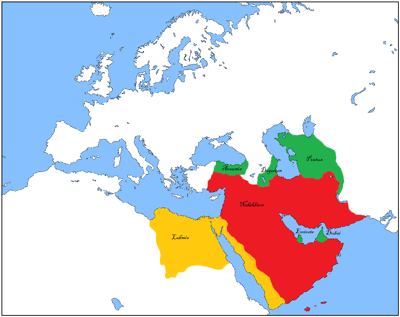 | |
| Goverment | |
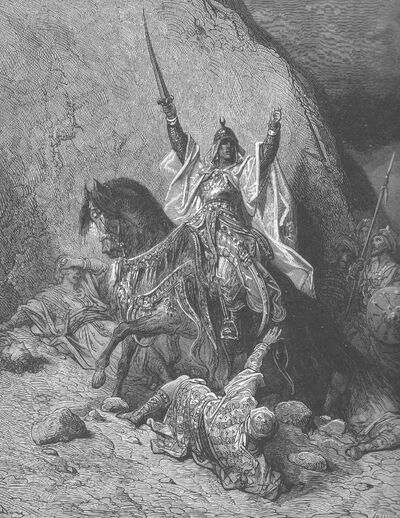 | |
| Type of Goverment | Theocracy |
| Head of State | Salif Saladin |
| Secondary Leaders | Satraps |
| Geography | |
| Location | Located in Arabia where it dominates much of the region |
| Capital | Al-Haikk |
| Population | |
| Languages | Arabic |
| Demonym | Nehekarans |
| Religion | Christianity is the only religion allowed in Nehekhara |
| Races, and Ethnicity | The Land is a mixture of many different Arab ethnicities |
| Population | Placeholder |
Nehekhara is a massive Empire that is situated centrally in Arabia, but it has control of an Empire that stretches from Eygpt to Ind. Arguably the largest Empire in the World in the meaning of size, it is an Empire that controls tens of millions within its borders. The Empire is beyond powerful, but recently it has been stalled by some serious opposition on many different fronts but the largest and most dangerous being the rise of Ind, and Outland to their east.
The empire is the largest christian nation in excistence and spreads Chrisitanity where ever it goes, and this religion also has come to define of whome will be the leader based on their family relationship with Jesus, or the relationship to a desiple of Jesus. While once an almost secular nation they are now basically defined by the Christian religion, and see it as their duty to spread it after they overcame an extremely dark time by the rise of Jesus Christ of whome begin to call himself the son of God after he was told by Zeus that he was his son. This started through their being at one time ruled over by their greatest Sultan in the form of Jesus Christ who was the starter of Christianity and believed to be the son of god on Earth. This real life connection has meant that all Sultan's live by the code of ruling which was written by Jesus nearly directly after he wrote the most important book of the area in the Bible.
The Empire of Nehekhara is ruled by the Sultan of Nehekhara of whom rules in the name of Jesus Christ with the assistence of two major groups in the form of the Angelic Council, and the Satraps. The Empire of Nehekhara is the most powerful individual in the empire with the power to change Empire laws at will, and his control over the two most powerful military orders in the Empire in the form of the Order of Saint Darius, and the Order of Saint Cyrus.
The military of the Empire of Nehekhara is split between two main lines in the form of the religious Christian orders that form the more centralized controlled element of the military of Nehekhara, and the second element of the military of Nehekhara is the fuedal armies of the land of whom are controlled domestically by the different Satraps of the Empire. The Christian Elements are at their esence controlled by the central government of the Empire of Nehekhara but they are heavily controlled and influenced by the Angelic Council of whom as the surviving leadership of Jesus hold true power over most of the Christian Orders.
The current Sultan and one of the most powerful men in the World is Salif Saladin of whom rules over the Shapir Dynasty. Salif is dealing with an increasingly difficult eastern border which is growing restive due to the migrations of the people of western Ind caused by the expansion of the forces of Illidan Stormrage. This is combined with the growing threat of the Empire of Byzantine which they have no means of combating without losing their hold on the east, or weakening themselves with the Lahmians.
The Lands of Arabia would only give rise to Nehekhara after the desert dwelling humans were uplifted by the High Elves who saw them as a greater ally then those who had previously dominated Arabia. The High Elves would spend centuries uplifting the humans until finally the Empire of Nehekhara gave rise, and it would expand massively until finally stalling into a long period of decline. This period of decline would become defined by both the fall of the Sultan and the rise of Jesus Christ. Jesus would rebuild the losses of the dark ages in Nehkhara and would bring about a Golden Age for their people before he was lost after being betrayed by the Kingdom of Lahmia. His death would cause a massive war between Lahmia, and Nehekhara and the war would end quickly when Lahmia was conquered and became a client state.
Geography[]
History[]
Early History[]
Before the coming of the first Sultan, Nehekhara was a far more sparsely populated land, empty of the teeming caravans that now dot its sands and plains.
The native humans of the region were a wandering folk,goat herds and gatherers for the most part,abandoning one region when the sands came to wash them away, only to move their tents eastward toward the mountains in summer or toward the sea in winter, as the winds took them. Only in the city of Al-Haikk was this wandering set aside. First a trade moot for the various nomads of the region, it became the site of a great annual horserace.At first the nomads made seasonal visits, but eventually some came to live there permanently,working the fertile land near the coast. Legends grew up around the place - that it was the site of great births and deaths, and that its waters couldheal even the mortally ill.
The High Elves arrive[]
It was the Elves that first were convinced the native Arabyans were worthy of trade rather than conquest. Though the locals wore coarse clothing,used crude weapons, and spoke an awful, grating tongue, their love of horses earned the Elves friendship.The Elves established great trading colonies along the coast which drew the attention of the desert nomads, and many moved there. These trading posts would later become the great cities of Al-Haikk ,Lashiek , and Copher . Arabyans came in large numbers from the interior of the Sahra Desert, expanding Al-Haikk and bringing commerce, learning, and formalized temples to the city.It took the Arabyans less than a century to settle the coast and to expand eastward to the border with Ind and the Lahmia , which sparked a series of minor conflicts.
Fortifying the boundary with a hundred stone watchtowers and the fortified city of El-Kalabad , Nehekhara's armies waited, guarding the borders against their eastern neighbour, the armies of the Kingdom of Persia . The armies turned their attention southward and set about expanding. The southern city of Ka-Sabar was created as a resort town, to show the ruler that life could be carved out of the desert and to grant relaxation and quiet to the thencurrent ruler of Araby. They founded other settlements as well, includingAl-Bashir , Martek ,and Bhagar , along with many others lost beneath the sands.
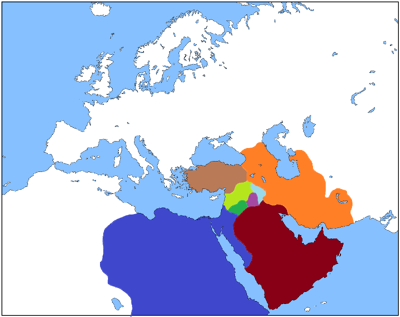
Nehekhara at the start of the Golden Age
Growth[]
- We realized that our Empire was diminshed to the point that we could no longer hold these far fledged colonies alone, and for this reason we offered the Arabs the chance to change their future. We gave them swords, and supplies and watched as they formed the largest Empire in human history.
- -Caledor Dragontamer
Following this period of exposure to the Elves, the people of Nehekhara were bustling and their population centers and armies were the envy of all their niehbors. They maintained friendly relations with basically none of their neighbors simply to the fact there trade with the Dwarves, and Elves was more then enough. This started off as simply not making the usual overchurchs of payment to Lahmia, or Persia which the Arabian tribes had been conditioned to think was normal. It started off as that but eventually the Arabs became arogant with their dealings with the region, and this culminated in the massacre of an entire convoy of diplomats that had been sent by the Persian Empire. When the Persians prepared for war it was made clear to them by the Elves that the Arabs had the support of the Elves and thus no action was able to be taken against them. This beligerance had caused quite the problamatic relationship between Nehekhara and their two closest rivals in The Persian Empire, and Lahmia. These two Kingdoms were hell bent on removing Nehekhara from the lands they wanted, and more importantly gaining the vastly important trade port of Al-Haikk.
War with Persia[]
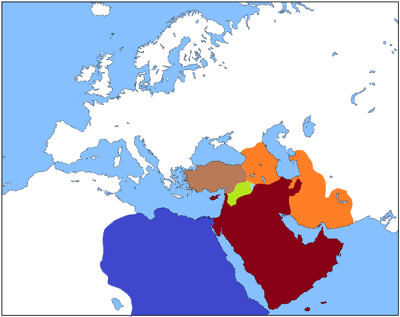
Nehekhara at the death of El Habrim
The Persian King at the time was a brash man with little stomach for waiting for a good oppurtunity. This came full bore when he launched a massive attack on the Nehekhara capital of Al-Haikk. Al-Haikk is perhaps the most impenetrable city in the entire region, and The persion King attacked it blind. His army overwhelmed the region which made him arrogant but as they approached Al'Haikk they surrounded the port and put it under their siege. The siege continued for nearly a year as the Persian army battered away attempting to get inside but the defenders barely were damaged, and the Persian army was desintigrating in the desert heat. As the Persians prepared for another attack on the city they came under massive assault from the rear by the gathered Arabs, and in this battle the Persian Army and their King were massacred to a man.
Middle Eastern War[]
With the defeat of the main Persian army now complete the Lahmians realized they had to step in or they were in real danger of watching as the Nehekhara Empire destroyed the Persian Empire. The Lahmians quickly gathered together the independants in the center and massed their armies for a major attack on Copher.
Decline[]
Following the death of El-Habrim the Nehekhara empire entered into a period of territorial stagnation, and severe cultural decline. This period was highlighted by the violent regimes of El-Abrahim II., and then upon his assasination the rule of Hervius Gallapio who was the first Sultan of Nehekhara born in Turkey.
Hervius's reign was one of complete internal strife, where in everyone who the insane and power hungry Hervius believed was his enemy was locked up or killed.
The reign of Hervius would only come to an end with the rise of Jesus Christ which would cause a rebirth in Nehekhara.

Jesus Christ[]
Main Article : Jesus
Jesus Christ was born in 71 B.C. in the massive Nehekhara city of Jeruselum. He was an extremely powerful Magi user, and became very politically motivated during the age of his life. For a time Jesus pondered simply protecting his region from the depravity of the mad Sultan, but eventually realized that it was within his power to save the Empire from destruction and so he had to help. He knew that if he left and began to expand his following the Sultan would have him assasinated so instead he went on a quest to recruit the twelve most loyal members of his followers and trained them in the use of Magi.
Each of these men was responsible for a specific area within Nehekhara and with this strategy in mind the Sultan was blinded by the power of Jesus, and missed the growing enemies throughout the Kingdom. Each of the chiefs turned entire tribes in their respective regions to the side of Jesus, and over the course of several years every area of Nehekhara had huge followings of Jesus Christ.
Civil War in Nehekhara[]
Fall of Baghdad[]
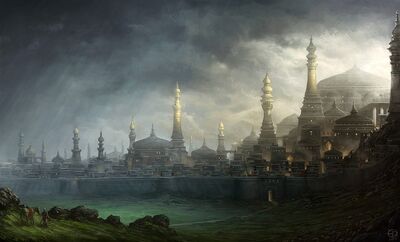
- "I moved with a passion I hadn't known over the course of my entire life. I realized after talking with Jesus that everything in my life had led me to this moment. I would take control of Baghdad and leave the Sultan with nothing but Al-Haikk to call his own."
- -Peter
With the civil war beggining to grow in intensity the main point was that they needed to begin taking control of the only major settlement outside of Al-Haikk that the Sultan controlled and that was Baghdad. Bagdad was controlled by the brother of Hervius and because of this it was obviously not going to betray the Sultan under any circumstances. Hervius though was busy dealing with the rebellion of Thomas, and Michael in Saudi Arabia and thus could not assist his brother, and it was this fact that the forces of Jesus would use to their advantage. Jesus would lead the massive army of Syria in an attack on Lemnia which was located between Bagdad and the main force of Hervia. He captured the city quickly since John the younger had already gained control of the majority of the population, and once in control he quickly fortified his position and waited for Hervia to come for him but the entire time knowing he was only holding the gap so that Hervia could not assist his brother in the coming fall of
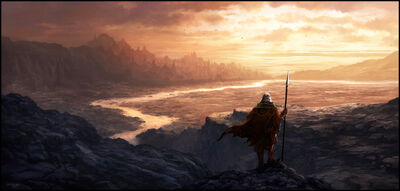
Baghdad. Peter would begin the fall of Baghdad by letting loose massive numbers of rebels within the city of whom attacked gaurds, commanders and ran rampant throughout the town causing immense problems for the defenders. While Hervians brother attempted to destroy the rebels the army of Peter attacked the weakened defences of Baghdad and after fierce fighting they broke inside of the fortress. With news of Baghdads fall Hervian abandoned his campaign in Saudi Aravia and moved against the defences of Baghdad but found he couldn't get their due to the defences constructed by Jesus. With no option of helping his brother he abandoned the field and returned to Al-Haikk and prepared for his last stand. Baghdad would fall later that week in brutal fighting around the palace district and Hervian's brother was executed and his body sent to his brother in Al-Haikk as a sign of respect for the commander who had fought bravely.
Jesus`s Rule[]
| Death of Jesus Angelica you call us gods, but in truth my beloved you betrayed the only true god any of us will ever meet. No matter how much evil we do we will never turn ourselves into anything more then the monster that turned us into this. |
|---|
The Death of Jesus[]See Also : Jesus
With the rise of the Vampires in the Kingdom of Lahmia and as their excesses got worse and more impossible to hide the legend of what they were begin to escape the walls of Lahmia and into the Empire of Neheharka where the Sultan Jesus Christ would take this information very seriously. Jesus was a great believe in intelligence of your enemies, and in this way he dispatched spies to the nation of Lahmia in order to see if what he was hearing were true, or whether they were just fables. After time went by the spies returned to him with information, and what they discovered in Lahmia was beyond horrifying to him as it appeared to the spies that the aristocracy of Lahmia were Vampires, and preying on their people like demons. With this knowledge and the fact that Jesus was completely unwilling to allow such demonic presence to exist he would begin by order his armies to be raised and under the command of his generals he would begin harassing the Lahmian front to discover the strength of these Vampire armies. In each battle the Lahmians were victorious but not because they used Vampires but because of the most brilliant military commander anyone had ever seen in the form of the Vampire Lord Abhorash. This Lahmian commander named Abhorash was using his army of 250,000 and defeating armies twice and sometimes more then that of his size, and it was in this that Jesus would take an even further look into the Kingdom of Lahmia but more importantly the General Abhorash.
With Queeen Neferata now completely on the side of listening to whatever Nagash wanted her to do, she ordered her messengers to send a communication to Jesus that she wished to meet with him near the mountains of Cache, where she would like to discuss the ending of the conflict between the two of their kingdoms. Jesus was given the truce of kings which was basically the most honor bound thing you could offer another king, and it meant that no harm would come to you while on the other persons land. As Jesus left Nehekhara and entered Lahmia his commanders and advisers advised him strenuously to take a much stronger force, and to have the massive reserves he had called in to assist him in case something happened. In the end he trusted that honor would be upheld, but he also believed himself the son of God, and in this way no harm could come to someone who was doing to the work of God. Above this as well he was accompanied by two of his apostles in Judas, and Thomas of which Thomas was fanatically devout in his belief that Jesus was the son of God and thus he took no great worry about any risk to Jesus. Judas though had become bitter about the fact that he felt Jesus had betrayed him by not repaying the debt he believed he was owed. This fact meant that despite the fact that he agreed with the advisers and that he thought they should bring more men he did not voice these concerns and instead allowed his master to continue down the path. Betrayal[]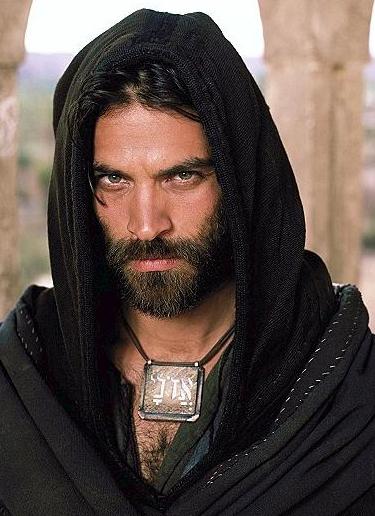
As Jesus entered the outskirts of the fortress of Cache, he became confused as to where the Lahmians were, and his commanders begged him to pull back, and for nearly a day he remained impassive about whether to pull back, and he felt no danger so he had his force rest for the night and the next day they would press inside the fortress and find out the truth, or turn back depending on what he felt. Silently Jesus was waiting to see what Judas would do as he had felt the hatred that Judas felt towards him but he had honestly begin to believe that he was the son of God and thus he believed that he would be protected from harm even if Judas led him into the massive army of Undead that surrounded them. Jesus spent the night sitting in his tent with Thomas meditating beside him, and he waited hours for Judas to decide on what would happen, and when finally Judas made the decision Jesus was saddened by the betrayal but believed that Judas would repent and believe in him if he proved to Judas how truly powerful he was. Last Stand[]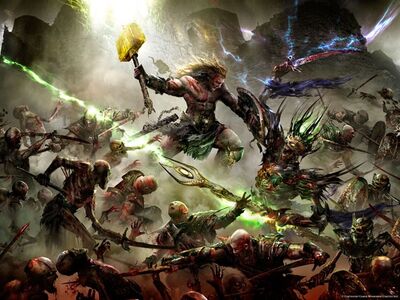
As the army woke the next day Jesus ordered them into the fortress and the incoming army of Undead that he senses. The army once they entered the fortress finally noticed the Undead all around them and they discovered that they were now surrounded by what appeared to be a million plus enemy soldiers. But this was no ordinary army this was the army of Nagash, and he alongside his million plus skeleton army charged the roughly 50,000 Nehekhara army. The battle didn't last long with the forces of Nagash absolutely destroying the army before it eventually surrounded the elite guard of Jesus, and the son of God himself. As Jesus's guard was whittled down man by man, he himself used his immense power to destroy thousands of the attackers each spell he cast. Jesus, Thomas, and Judas formed a triangle where in they all fought together and were basically unbeatable. This went on for hours as they fought shoulder to shoulder until Jesus felt Judas move away and watched with pained eyes as Judas teleported himself away from the battle leaving Jesus and Thomas with their triangle broken. As Thomas finally was felled by the ravening horde Jesus himself watched as the skeletons stopped coming forward and made a massive entrance path for something.
Jesus watched as the enigmatic figure of Nagash walked down the pathway. When he reached the end Nagash would stop and Jesus realizing in this moment that he was going to die would deliver his final revenge when he would curse the Vampires who were Nagash`s true punishment on the world, and following his chanting of the curse Nagash would step forward and the two would begin their final battle. On a normal occasion the two were equally matched, but with Jesus having just fought for hours he was exhausted, and the world lost its second Man God when Jesus failed to deflect a killing spell and fell to the ground dead. |
| Destruction of Lahmia I made a terrible mistake Stefon...I led us into the gates of the very hell I was trying to avoid, and now look at our home. We played in the gardens and we lived the lives of normal people, and I destroyed all of that. What can I do now. Tell me what I can do now to make this right. I do not want this to end like this. I cannot accept that I did all of this evil and there wont be some kind of happy ending for us. We were supposed to live forever. It wasn`t supposed to end this way. |
|---|
Destruction of Lahmia[]Main Article : Fall of Lahmia 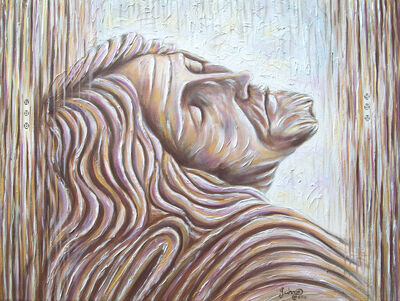
When Jesus died, the reverberations from his death combined with the death of Thomas shortly before that led to a nearly mythical Magi shock wave spreading throughout the planet. Those with Magi abilities were literately pained by this wave, and the level of their pain increased with the Magi ability. It was in the Empire of Nehekhara that Peter was meeting with the members of the government when he fell to the ground in pain. Surrounded by the men they helped him up, and he announced to everyone what had happened. Within days every single Apostle would arrive at El-Kalabad on the border and it was there that they mobilized and bashed aside the few Lahmian forces that stopped them from trying to get to Cathe. Retrieving the broken headless body of Jesus they returned to Damascus where they had a great funeral for the Son of God Jesus Christ. The Funeral lasted for nearly a month, and the different Apostles took the death completely differently. Led by Peter the majority would be overcome with grief and anger and would raise a massive army that they would lead back to El-Kalabad in preparation to gain revenge against Nagash and Queen Neferata. While this was true of many there were also apostles that took no part in the conflict and chose a different path.
The massive army of the Empire of Nehekhara arrived at El-Kalabad and it was as they entered the ruins of Cathe for the second time that they were met with resistance from Nagash and the Lahmian army. Discovering the Truth[]
The Apostles of Jesus were not the only ones to quickly discover the death of Jesus, as the Magi of Lahmia quickly told Angelica Neferata and the assembled government of Lahmia that Jesus was dead and Nagash was now on route to the northern ports making his escape. Angelica was quickly advised by her main commander in Abhorash that if the army of Nehekhara came for aggression there wasn't a thing they could do to stop them. In this way and realizing the mistake she had made, Angelica would send messengers to Al-Haikk stating their non-involvement in the death of Jesus and that they had been tricked by Nagash. These messengers never made it to Al-Haikk but were caught by the massive army now assembled at Cathe. If the apostles got this message they did not accept it, and Angelica watched as they entered Cathe and gathered the body of their savior and then left again where her spies told her that they had a massive funeral. Harakhate be commanded by Angelica Neferata to flee Lahmia following the lack of response from the forces of Nehekhara as she wanted to make sure there would be somewhere for the Vampires to go if the worst came to pass, and in this way he traveled to Greece where he alongside his bloodline took control of an island of the coast of southern Greece. It was following the departure of Harakhate and as they waited for the army of Nehekhara that Nagash would return to the capital. The Return of Nagash[]
Nagash would be sent word from Sauron that he should retreat as Sauron's spies in Nehekhara told him that the apostles remained alive and were leading the armies in the name of revenge against Nagash and the Lahmians. Nagash would try and escape through the ports of the northern coast, but each ship that he tried to board would nearly immediately collapse due to sabotage, or suicide of the crew members. He and his loyal commander Larloch attempted to undue the spells but discovered a power more endless then anything they knew about, and gave up. Realizing that some Magi beyond his power was binding him to Lahmia he believed the only way to escape was to defeat the armies of Nehekhara and then make his escape. Returning to Lahmia City he would meet with Angelica Neferata of whom he would gather with to meet the forces of Nehekhara in battle. Battle of Cathe[]For such a devastating conflict their were only really two battles in the entire conflict and the first was a massacre known as the Battle of Cathe. For years the army of Lahmia had held off attack after attack using the immense skill of Aborhorash but now the army of Nehekhara was led by Peter the Apostle and every other assembled Apostle also involved. Numbering nearly three million plus the Apostles and thousands of Angels the army of Nehekhara quickly smashed into the forces of Lahmia and Nagash of whom even with Nagash's demonic army only numbered 400 thousand. The Battle left nearly the entire Lahmian, and Nagash army destroyed and hundreds of the vampire aristocrats were killed in the battle, but Abohorash, W`soran, Nagash and many other Vampire Lords retreated back to Lahmia City. Battle of Numas[]Fall of the Capital[]
Wsoran aided by summoning legions of undead, animating the slain soldiers of the Sultan of Nehekhara`s own army and turning them against their still living companions. Legends say that Nagash assisted W`soran. Eventually however, the Nehekharans was victorious and the vampires who survived fled north. The Temple of Blood and the Great Library with all its arcane knowledge went up in flame. Some of the Necrachs, Wsoran's vampire children, refused to abandon the library and were burned. W`soran himself took as many books and scrolls as he could carry and made a run for it. Fleeing Lahmia[]
With the War with Nehekhara lost, Queen Angelica Neferata gathered the survivors of her court to her in the small Lahmian estate village of Glova where they very silently licked their wounds and prepared to decide the next steps. As the days went by and the members of her court that had survived managed to reach the estate she decided that they would head north towards the obscure port of Hashin, which she hoped would not have been taken by the Nehekhara forces. The Vampires made their way north, and moved very carefully through the rear echelon of the Nehekhara forces that were mopping up the survivors of the war. During this time their power meant that they were able to move quite easily without any real trouble in only two months. When they arrived at the town they found they were lucky and it had in fact been disregard by the Nehekhara armies in their rush for the capital of lahmia. Turning Tormund[]
Tormund and his family that flee from the city of Khito after the Mayor of the city returns having lost a battle east of the town and warns them that the Nehekharians are coming with blood on their mind. Tormund and his family travel with a large group northward attempting to reach what everyone believes is the safe harbor of the fortress of Memphis. Arriving at the outskirts of Memphis they discover the city is on fire and the group decides to make the decision to cross to the western side of the Nile and then go north again. Reaching the rivers edge the group is discovered by Nehekhara soldiers who massacre the group leaving a fatally wounded Tormund to drag himself to a small boat by the rivers edge. Elasus Fox and Meghanna retreat from the ruins of Numas traveling westward towards the Nile where they hope to take a boat northward. Arriving eventually at the town of Tlumas where they find the city already on fire forcing them to travel around the city heading northward. Passing through ruined town after town they eventually reach the town of Memphis which is also on fire but they believe they can find a boat there. Finding several massacre sites they eventually find a boat, but as they go to push the boat they notice a badly injured young man, and watching him die Meghanna makes the decision to turn him into a Vampire. |
Growth[]

- "His death was the tolling of a bell that I just could never understand."
- -Peter
Following the collapse of the Lahmian resistence the Empire of Nehekhara was stuck in a rut for some time as the apostles of Jesus attempted to discover what purpose the death of Jesus could have possibly served. Eventually the apostles came to believe that Jesus would return at the time of Nehekhara's greatest need, and for this reason they built an idea of growing Nehekhara so that it would be just as he left it when he returned. Some of the Apostles argued for massive expansion, while others wanted a conservative approach, and eventually after much debate the agressive Apostles led by Peter would win the argument and put in place the first Sultan in the form of Mehmad I. Mehmad I. would wage a final war against the rising Armenian Empire, the Caucus region, and begin the aggresion against the Empire of Ind. While Peter and some of the Apostles did wage this conflict there were others that refused to leave the cities that they had been left, or the tasks that Jesus had left them with. In this way the first fractures of the Apostles of Jesus were created following the death of Jesus.
- Andrew: The Apostle Andrew would remain in Bagdhad where he would construct a massive Temple. This Temple became known as the Dome of Tears as it was said that Andrew cried the entire time that he was building the Temple. From that point on he left the Temple only once when Peter came to Bagdhad and when he did it was only to briefly speak with him before he left him and returned to the Temple interior.
- John the Elder: John the Elder would remain in the fortress of El-Kalabad following the death of Jesus. He would enter the Church of the Annunciation one day after the funeral of Jesus and would remain their from that day forward. His survival is not known but John the Minor has entered the temple almost every day he is in the city and much food is sent into the temple by the people in the hope they can feed their Apostle.
- John the Minor: John the Minor would remain with John the Elder in the fortress of El-Kalabad following the death of Jesus. John the Minor would cloth himself in black Garb and would spend his time roaming the deserts around El-Kalabad while also acting as the leader of the city while John the Elder remained in the Church of the Annunciation. John the Minor would on many occasions lead the armies of El'Kalabad into battle against rebels of the area as well as once every ten years John the Minor has taken an army to Cathe where he prays alongside Peter and other apostles who also visit the spot.
- Philip: At the time of the death of Jesus it was Philip that was remaining in the position left by Jesus as the bodygaurd of Jesus's mother Mary, and following the news that Jesus was dead Mary would jump into a well killing herself in her sadness. Philip would banish everyone from the area and would construct a wall around the area where he would remain at the well of Mary. Philip remains watching along the walls where he is said to scream at all hours about his pain.
War with Ind[]
Conflict with the Byzantines[]
Goverment[]
The Empire of Nehekhara is ruled by the Sultan of Nehekhara of whom rules in the name of Jesus Christ with the assistance of two major groups in the form of the Angelic Council, and the Satraps. The Sultan of Nehekhara is the most powerful individual in the empire with the power to change Empire laws at will, and his control over the two most powerful military orders in the Empire in the form of the Order of Saint Darius, and the Order of Saint Cyrus.
Following the rise of Jesus Christ he would dramatically change the empire from its previous absolute monarchy to its current form as a multi-state empire, governed by six capital states; Turkey, Syria, Babylon, Arabia, Persia, and Seluecid. Above these six High Satraps stood the Sultan of Nehekhara of whom was the overall ruling Dynastic leader of the Empire of Nehekhara and he controlled most things, but as stated the Satraps do have a high measure of self-direction in their own lands.
Sultan of Nehekhara[]
The Sultan of Nehekhara is the noble title held by the overall ruler of the Empire of Nehekhara and is a dynastically held position by whatever Dynasty is in rule at the time.
List of Sultans of Nehekhara[]
| Name | Reign | Dynasty | Seat |
|---|---|---|---|
| Abu Saladin Shapir | Shapir Dynasty | Al-Haikk | |
| Salif Saladin Shapir | -Current | Shapir Dynasty | Al-Haikk |
Angelic Council[]
The Angelic Council is the council that stands beneath the Sultan of Nehekhara and is made up of members of the Twelve Chiefs of Jesus, and is held as the religious leadership of the Empire of Nehekhara. The Angelic Council acts as a advisory council as its first function, but beyond this they must sign off on any empire wide law changes making them a rubber stamp on the Sultan through this power. Each member of the Angelic Council has a corresponding Domain of control within the government of the Empire of Nehekhara and attempting to move for change in this area without the input of this councilor would be considered a great taboo.
| Title | Title Holder | Domain | Seat |
|---|---|---|---|
| Arch Angel of Valor | Peter the Apostle | ||
| Arch Angel of Justice | Andrew the Apostle | ||
| Arch Angel of Wisdom | John the Elder | ||
| Arch Angel of Hope | Simon the Apostle | ||
| Arch Angel of Fate | Mathew the Apostle | ||
| Arch Angel of Death | Michael the Apostle | ||
| Arch Angel of the Tomb | Paul the Apostle | Grave of Jesus | Tomb of Jesus |
Satrapy[]
Following the rise of Jesus Christ he would dramatically change the empire from its previous absolute monarchy to its current form as a multi-state empire, governed by six capital states; Turkey, Syria, Babylon, Arabia, Persia, and Seluecid.
Capital States[]
| Name | Ruler | Seat | State Religion | Population |
|---|---|---|---|---|
| Satrap of Turkey | Ediz Sokmen | Sirat | Nestorian Christians | Turkish |
| Satrap of Babylon | Placeholder | Nestorian Christians | Arab (Iraqi, Kurdish) | |
| Satrap of Syria | Nestorian Christians | Arab (Syrian, Lebanese) | ||
| Satrap of Arabia | Nestorian Christians | Arab (Saudia, Iraqi) | ||
| Satrap of Persia | Placeholder | Shia Christians | Persians | |
| Satrap of Seleucid | Assyrian Christians | Assyrian |
Satrapys[]
The Empire of Nehekhara certain amount of regional autonomy in the form of the satrapy system. A satrapy was an administrative unit, usually organized on a geographical basis. A 'satrap' (governor) was the vassal king, who administered the region, a 'general' supervised military recruitment and ensured order, and a 'state secretary' kept the official records. The general and the state secretary reported directly to the satrap as well as the central government. satrapies.
Client States[]
The Empire of Nehekhara has usually been prone to simply incorperating realms they take control of into their Empire, but on several occasions and for various reasons they have also formed client states, or maintained a nation on their border but these nations are independant in many ways but know they must heed the direction of the Empire of Nehekhara in order to maintain this independance.
| Name | Ruler | State Religion | Population |
|---|---|---|---|
| Kingdom of Armenia | Theodore Rshtuni | Assyrian Christians | Armenian |
| Realm of Dagestan | Assyrian Christians | Avars | |
| Kingdom of Parthia | Artabanas Ardavan IV. | Persians | Shia Christians |
| Kingdom of Georgia | David Bagrationi | Assyrian Christians | Georgians |
Demographics[]
Main Article : Demographics of Nehekhara
Its massive size would imply a massive population to go along with it, but in many provinces this is not true. The provinces of Syria, Lebanon, Iraq, and Iran constitute only 40% of the land size of the Empire but have 79% of the population. The Arabian Peninsula constitutes a huge part of the area of the Empire of Nehekhara but throughout these lands the population is far less dense with the only major population centers dotted arounnd desert lakes, and the coasts.
Ethnic Groups[]
| Ethnicity | Share of Population |
|---|---|
| Arabian (Syrian, Lebanese, Saudia, other) | 47% |
| Turkish | 23% |
| Kurdish | 5% |
| Persian | 15 |
| Assyrian | 5% |
| Other | 3% |
Religion[]
| Religion | Share of Population |
|---|---|
| Christian | 94% |
| Zoastianism | 4% |
| Other | 2% |
Christianity in Nehekhara[]
Main Article : Christianity
The empire is the largest christian nation in excistence and spreads Chrisitanity where ever it goes, and this religion also has come to define of whome will be the leader based on their family relationship with Jesus, or the relationship to a desiple of Jesus. While once an almost secular nation they are now basically defined by the Christian religion, and see it as their duty to spread it after they overcame an extremely dark time by the rise of Jesus Christ of whome begin to call himself the son of God after he was told by Zeus that he was his son. This started through their being at one time ruled over by their greatest Sultan in the form of Jesus Christ who was the starter of Christianity and believed to be the son of god on Earth. This real life connection has meant that all Sultan's live by the code of ruling which was written by Jesus nearly directly after he wrote the most important book of the area in the Bible.
| Religion | Share of Population |
|---|---|
| Nestorian Christians | |
| Sunni Christians | |
| Shia Christians | |
| Miaphysite | |
| Monophysite |
Population[]
| Name | Population | Ruler | Major Groups |
|---|---|---|---|
| Al-Haikk | Shapir Dynasty | Kurdish | |
| Baghdad | Iraqi | ||
| Lashiek | Assad Dynasty | Syrian | |
| Copher | |||
| Martek | |||
| Damascus | Haflez Dynasty | Syrian | |
| Yereven | 450,000 | Assyrian | |
| Babylon | 170,000 | Shapir Dynasty | Kurdish |
Language[]
Arabic[]
Main Article : Arabic
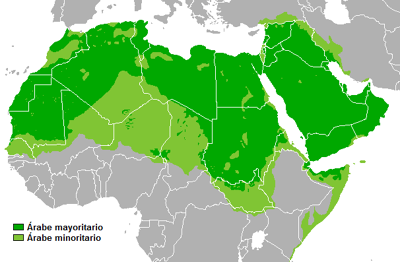
The spoken Arabic varieties are spoken in a wide arc of territory stretching across the Middle East and North Africa. Arabic languages are Central Semitic languages, most closely related to Hebrew, Aramaic, Ugaritic and Phoenician. The standardized written Arabic is distinct from and more conservative than all of the spoken varieties, and the two exist in a state known as diglossia, used side-by-side for different societal functions.
Some of the spoken varieties are mutually unintelligible, and the varieties as a whole constitute a sociolinguistic language. This means that on purely linguistic grounds they would likely be considered to constitute more than one language, but are commonly grouped together as a single language for political and/or ethnic reasons. Arabic has also borrowed words from many languages, including Hebrew, Greek, Persian and Syriac in early centuries, Turkish in medieval times and contemporary European languages in modern times, mostly from English and French.
Kurdish[]
Main Article : Kurdish Language
Kurdish (Kurdish: Kurdî or کوردی) is a dialect continuum spoken by the Kurds in western Asia. It is part of the Iranian branch of the Indo-Iranian group of Indo-European languages.
Kurdish is not a unified standard language but a discursive construct of languages spoken by ethnic Kurds, referring to a group of speech varieties that are not necessarily mutually intelligible unless there has been considerable prior contact between their speakers. The second official language of Iraq, referred to only as 'Kurdish' in political documents, is in fact an academic and standardized version of the Sorani dialect of a branch of languages spoken by Kurds. In its written form today "Kurdish" has two regional standards, namely Kurmanji in the northern parts of the geographical region of Kurdistan, and Sorani further east and south. Another distinct language group called Zaza–Gorani is also spoken by several million ethnic Kurds[13][14][15][16] today and is generally also described and referred to as Kurdish, or as Kurdic languages, because of the ethnic association of the communities speaking the languages and dialects
Persian[]
Main Article : Persian Language
Persian (locally known as فارسی fārsi, دری darī), and тоҷикӣ تاجیکی tojikī) is an Iranian language within the Indo-Iranian branch of the Indo-European languages. It is primarily spoken in Iran, Afghanistan, Tajikistan, and countries which historically came under Persian influence. The Persian language is classified as a continuation of Middle Persian, the official religious and literary language of Sassanid Persia, itself a continuation of Old Persian, the language of the Persian Empire in the Achaemenid era. Persian is a pluricentric language and its grammar is similar to that of many contemporary European languages, making Persians the source of much of the diplomats sent to Europe.
Persian has had a considerable, mainly lexical influence on neighboring languages, particularly the Turkic languages in Central Asia, Caucasus, and Anatolia, neighboring Iranian languages, as well as Armenian, and Indo-Aryan languages, especially Urdu. It also exerted some influence on Arabic, while borrowing much vocabulary from it after the Muslim conquest of Persia. With a long history of literature in the form of Middle Persian before Islam, Persian was the first language in Muslim civilization to break through Arabic’s monopoly on writing, and the writing of poetry in Persian was established as a court tradition in many eastern courts.
Culture[]
Nobility[]
Within the Empire of Nehekhara there exists two different layers of nobility unlike the one layer in Europe. The first layer is the most numerous and is the aristocratic families of whom can be lords or above but there families exist as houses, such as the European style (eg, House Graphi...). The Second layer of the nobility are those higher ranking noble families who control Satraps, the title of Sultan, one of the rarer titles, or in the last case are of the families of the Apostles of Christ, and these noble families are known by their dynastic name (eg, Shapir Dynasty...)
Naming[]
The Empire of Nehekhara's early people would come to admire during its earliest days following the foundation of the Empire of Numeron to its west and in this way they would emulate many things done by the Numenorians including the adoption of their naming system. In front of the first name of a person of noble descent, and behind their family surname lies a symbolic middle name which represents their place on the ladder of society. Each culture has adopted a different set of terms for the different identities, but their is an overarching title for middle names of the highest levels of goverment including the well known title of Saladin which represents the Sultan of the Empire of Nehekhara.
| Middle Name | Title |
|---|---|
| Saladin | Sultan |
| Ben | Crown Prince |
| Lat | Crown Princess |
| Delut - Syrian | High Lord |
| Mary | Sultana |
| Ren | Lower Prince |
| Mat | Lower Princess |
| Cal | Caliph |
Military of Nehekhara[]
The military of the Empire of Nehekhara is split between two main lines in the form of the religious Christian orders that form the more centralized controlled element of the military of Nehekhara, and the second element of the military of Nehekhara is the fuedal armies of the land of whom are controlled domestically by the different Satraps of the Empire. The Christian Elements are at their esence controlled by the central government of the Empire of Nehekhara but they are heavily controlled and influenced by the Angelic Council of whom as the surviving leadership of Jesus hold true power over most of the Christian Orders.
Heavenly Host[]
Order of Batholemu[]
The Order of Batholemu is a Magi Order within the Heavenly Host and hosted within the Magi Fortress of Cana in Syria they practise a sort of Christian Magi which is most closely tied to the Restoration School of Magi.
Satrap Armies[]
- Musir : Leads one of the four war fronts and commands all armies in his sphere of influence. Equivelent of Field Marshal.
- Ferik : Leads a Nehekhara Army
Fortresses of Nehekhara[]
| Name | Defence Position |
|---|---|
| El-Kalabad | Border with Lahmia |
Foriegn Relations[]

High Elves[]
See Also : High Elves
The Arabians are great sailors and have for many centuries fished the adjoining seas and traded south along the coast, northwards to the western parts of Europe , and westwards as far as Ulthuan . The High Elves do not permit Arabian vessels to travel further west than Ulthuan itself, their high-prowed dhows are a common sight in the outer harbours of Lothern. Fortheir part the High Elves maintain a mercantile presence in Copher and Lashiek as they have since time immemorial. The Elves and men of Araby had dealings even during the long centuries when the Elves abandoned their colonies. Being not only capable seamen but also bold and adventurous,Arabyans will eagerly exchange fishing and trading for piracy, and nowhere is this more the case than in Lashiek which is consequently known as the City of Corsairs.